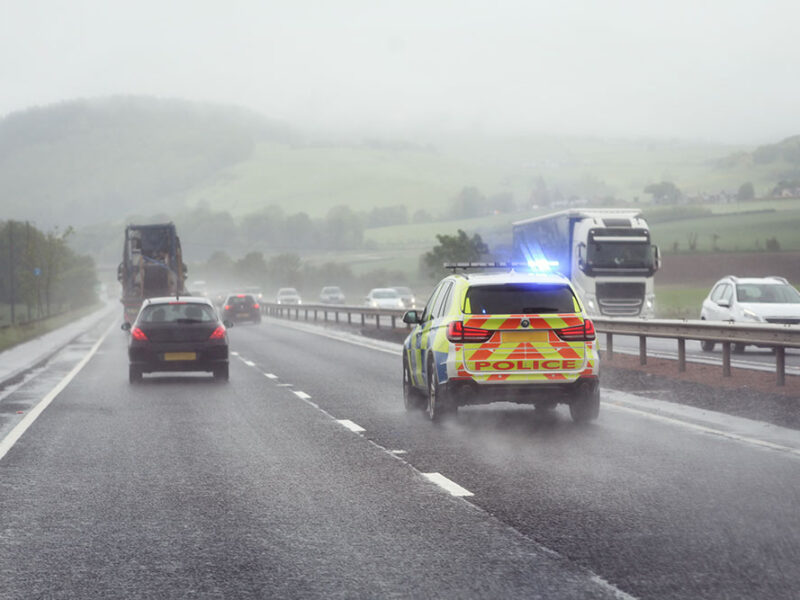Changes to the HGV & PSV Test Regime for Earned Recognition Operators
In March 2021 the Government began a review into the processes for commercial vehicle testing to look at ways it could improve the regime for operators whilst still maintaining high safety standards for any vehicle used commercially on the UK’s roads.
The outcome to that review was published earlier this year with four proposed options for changing the testing regime for operators who hold the DVSA’s Earned Recognition status. Click here to read the full document.
The DVSA earned recognition for vehicle operators is a voluntary scheme within the UK, for PSV & HGV operators to “prove” that they are meeting both the driver and vehicle standards required by the regulatory regime. In return for sharing information about the maintenance and performance of the vehicles the company owns, with them, the DVSA “promises” to be less likely to stop your vehicles for inspections. When it works, Earned Recognition status saves “ER” operators time and money by keeping your vehicles on the road and giving the DVSA confidence that Earned Recognition vehicles are safe and compliant.
The four proposed options were as follows:
- Option 1: Increasing the time between tests for earned recognition operators.
- Remove the requirement for ER operators to have vehicles tested every 12 months.
- Option 2: Delegated testing
- Allow ER operators to test their own vehicles and trailers.
- Option 3: Reduced test content
- Reduce test content, such a removing some items that are covered in routine inspections, or in the longer term, those that can be effectively monitored by in-vehicle systems.
- Option 4: Improved service provision
- The DVSA could focus its service improvement on ER operators, for example, by giving complete or greater guarantee of requested authorised test facility slots and greater flexibility around days and hours worked to match maintenance requirements.
What Responses did the Department for Transport Received?
The Department for Transport received 49 formal responses from operators and six additional written submissions, and of those respondents a total of 59% of those who did respond stated that the current testing regime for earned recognition operators should be altered.
The most popular option for changes to the annual testing regime was the option to delegate testing (option 2), which made up 42% of the overall vote. Second came the option of increasing the time between tests for ER operators (option one) with 34% of the vote. Options three and four garnered just 12% each and as a result, both have since been dropped from further consideration by the Department for Transport.
Commenting on the review outcome, The Department for Transport has stated that increasing the time between tests would help reduce “unproductive time whilst awaiting tests” and that there was “moderate” support for this option among those who had responded, but that there was a strong view that changing the frequency of vehicle testing could increase road safety risks if not “supervised properly and without adequate safeguards”.
The responses on Option 2 – delegating of testing were generally positive. This option would maintain the volume of data feeding into the ER scheme, but it would mean that it is not under the control of the DVSA and may not provide an independent review of maintenance undertaken by the operator. They go on to state that for many ER operators, there would only be a benefit with this option if “sub-delegating” of testing by ER operators to 3rd parties was possible, which would just add yet more complexity into the testing regime.
Options 1 and 2 have the benefits of increasing choice for ER operators and allowing more opportunities to reduce unproductive time awaiting tests. They also help with scheduling issues but set against these possible benefits are the concerns around lessening or possibly removing roadworthiness data and also a real worry about increasing road safety risks.
Some “non-ER” operators argued that all vehicles should be subject to the same testing regime and that the Earned Recognition Scheme for operators already has many benefits – chief amongst these the promise not to be pulled over by the DVSA for roadside inspections - testing of vehicles should not be one of them.
Next Steps for the Review?
The Department for Transport is suggesting further work should be done on Option One (increasing time between tests for ER Operators) and that further assessment on the following areas should be undertaken:
- Whether lessening testing frequency will result in a reduction in in-use condition of vehicles between those tests and whether changes to the ER scheme could mitigate any such risk,
- How to ensure ER continues to have sufficient data to be effective in identifying highly compliant operators with safe operating practices,
- Whether ER should be put on a statutory footing in association with any test changes,
- Whether to require a test to have been completed within the last year for vehicles used in international circulation,
- The position of vehicles (tractors and trailers) which move between ER and non-ER operators,
- The position of vehicles of operators who lose their ER status, and
- The procedures to implement the option for both HGVs and PSVs.
If you have any questions regarding the changes discussed in this article, or questions about your eligibility for the earned recognition operator scheme, or vehicle maintenance in general, then please click here to send us an email, or call us directly on 01279 818280. We are here to help.
(c) Richard Pelly, May 2024

More News and Insight

Carrying Your Own: Horses to Widgets? Do you Need an O Licence?
The DVSA recently released a press release about the rules for transporting horses in horse boxes and trailers following an update on the guidance about using a tachograph in the vehicle being used to transport the animals…

The Senior Traffic Commissioner’s Statutory Guidance
The value of The Statutory Guidance Documents and the importance to operators, nominated transport managers and other professionals involved in the operation and driving of large commercial vehicles cannot be overstated…

Walkaround Checks – Where Road Safety Starts
Every day, often before the sun is above the horizon, hundreds of thousands of commercial vehicles are started up by their drivers and then they head out on to the UK’s road network to transport goods or passengers from one point to another, often with demanding time constraints thrown into the mix…

Traffic Commissioner’s Annual Report 2024/25: “Don’t Look Back in Anger”
Time has flown by and once again we find that the schools are back after the long summer break and the Office of the Traffic Commissioner has issued its annual report to the Secretary of State, providing a review of the year…

An Apple a Day to Keep the DVLA Away – A review of the DVLA’s Rules on Health Checks for Professional Drivers
There has been some discussion in the industry trade press recently that has highlighted proposed changes to how the disease of diabetes is monitored in professional drivers by the DVLA. One article in RouteOne Magazine stated that…

Light Goods – Heavyweight Industry: The DVSA’s New LGV Strategy
While relatively small in overall physical size light goods vehicles (LGVs) are now a large part of the UK road transport industry. There are currently estimated to be over 5.1 million light goods vehicles on UK roads today…

Employment Law Update – A tale like Scylla & Charybdis
Operators currently face their own real time nightmare in the form of a modern day version of the Greek mythological tale of Scylla and Charybdis (where sailors faced a narrow strait through which they had to pass which had a monster on one side and a whirlpool on the other!)…

Labour Government – Employment Rights Bill – What Will It Mean for Transport Businesses?
In October 2024 the Deputy Prime Minister, Angela Rayner set out her intention to reform the employment rights held by employees in the UK. In a press release issued at the time she is quoted a saying…

Revisiting the DVSA’s Guide to Maintaining Roadworthiness
In April 2025 the Driver & Vehicle Standards Agency (DVSA) issued the latest edition of its Guide to Maintaining Roadworthiness.

The Wheels on the Bus go Round & Round….but how do they Stop?
At the tail end of 2024 a Public Inquiry was held in front of Traffic Commissioner Kevin Rooney where the subject of brake maintenance practices was called into question…

Maintenance Provision Rating Scheme for Commercial Vehicle Workshops is Launched
One of the key tenants of running a commercial vehicle operation, whether ‘HGV’ or ‘PSV’ is that the maintenance of the vehicles is paramount. For some operators this will mean having their own maintenance facilities and teams to look after their fleet of vehicles in house, but the majority of operators in the UK are reliant on 3rd Party maintenance providers…

Changes to Brake Safety Inspections for Commercial Vehicles – April 2025
In April 2025 the brake testing regime guidance will change. Roller Brake Tests, that have been mandatory for years, will be joined by an Electronic Break Performance Monitoring System or EBPMS…
